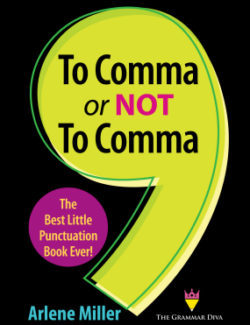Tainted Words
 Polysemia – An abnormal awareness of possible ambiguity; the uncontrollable tendency to bring to mind an inappropriate or unintended sense of a word in any context.
Polysemia – An abnormal awareness of possible ambiguity; the uncontrollable tendency to bring to mind an inappropriate or unintended sense of a word in any context.
So polysemic words can have more than one meaning. But they can also simply have a connotation that is brought to mind when one hears the word. Words with a negative connotation are said to have “semantic taint.”
You know if you have ever been a teacher in junior high or high school that you cannot tell your students to turn to page 69. You can’t use the word balls even if you are talking about sports. There are lots of words and names like that.
gay – Now has actual two different meanings: 1) happy and joyful, 2) homosexual
queer – 1) Odd, 2) Slang for homosexual
homo as a prefix – see above
diaphragm – 1) part of the body used to breathe and sing, 2) birth control device
fairy – 1) little character with wings in fairy tales, 2) slang for homosexual man
period – 1) punctuation mark, 2) menstruation
prick – 1) to stab as with a needle, 2) slang for male body part
screw – 1) little tool for putting things together, 2) slang for sex
There are people’s names who either mean something (generally in slang) and some that simply have a negative connotation:
Jack – May bring to mind the slang jack off.
John – Also name for a bathroom or for a pimp
Jezebel – Brings to mind a loose woman, although doesn’t actually mean it
Adolph – Perfectly fine name, but may bring up negatives, as one might first think of Hitler owning that name
Dick – Also slang for male body part
Peter – Ditto
Mr. Pecker, from the National Inquirer – Ditto!
Prudence – Might being to mind the thought that the owner of this name is a prude.
There is another category of words that have perfectly fine meanings, but sound “dirty” even though they are not. If you are talking to children, you might get titters (there’s one right there) when you say these words:
hoary (not whore-y)
penal
asinine
feckless
titillate
Uranus
tit for tat
seaman (person in the Navy)
Some of this information comes from a book, Verbatim, which I recommend to word lovers. The book was taken from a journal, Verbatim, The Language Quarterly. Founded in 1974, the journal was supposed to have 4 pages per issue. It soon grew to 6 pages and then to as many as 64 pages per issue. The first 24 issues take up 991 pages of text.
Verbatim was founded by Laurence Urdang, one of the most prolific lexicographers of the English language. He was also a dictionary editor. The final editor of the now defunct journal was Erin McKean, an American lexicographer and the founder of Wordnik.com, the world’s largest online dictionary. She is also the editor of the book Verbatim.
Lexicographer: A person who compiles dictionaries.
*******************************************************************************
The Grammar Diva will be running The Best of the Grammar Diva posts during the month of October, but I promise they will be worth the read – even if you are reading them again!
By the way, To Comma or Not to Comma has won Joel Friedlander’s book cover contest for nonfiction books, August 2018. Thanks to my great cover designer, Matt Hinrichs!




